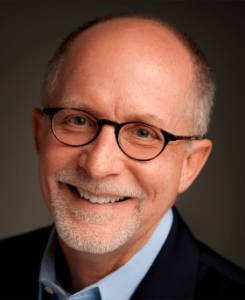With the presidential inauguration, a new session of Congress and state legislatures gearing up, Americans receive fresh reminders to look toward the future with hope. Of course, we place ultimate trust in God and not government. But we propel our nation toward hope when we seek justice and demonstrate compassion for people in need. Striving for the common good is the path on which American can become great—or at least better.

Marv Knox
In this still-new year, Fellowship Southwest intends to advocate on behalf of these hope-full causes. We hope faithful Americans will join us.
Immigration reform. For a nation with so many citizens who claim to follow Jesus, the United States has been abysmal at responding to the most vulnerable people in the Western Hemisphere, who have sought to enter our country legally.
Fellowship Southwest’s immigrant relief ministry has provided shelter, food and protection to asylum seekers from the Gulf of Mexico to the Pacific Ocean. We know them and know their stories. We have seen how they suffer, primarily because of our own government’s punitive policies.
We applaud President Biden’s pledge to end the so-called Migrant Protection Protocols — also known as “remain in Mexico” — that have caused asylum seekers to languish indefinitely in Northern Mexico as they wade through the asylum process. We respect strong borders and hope for an orderly asylum process, but we also want immigrants to receive just and fair treatment, at a steady and deliberate pace. We also expect discontinuation of the separation of children from their families.
People of faith who take Jesus’ mandate to serve “the least” — the weakest and most at-risk — can find common cause in supporting immigration reform that delivers justice and compassion.
Public education. A strong public education system is a great guarantor of a strong democracy. Access to quality education also is vital for ensuring all people receive an opportunity to live productive lives, care for themselves and fulfill their potential.
“A strong public education system is a great guarantor of a strong democracy.”
We have seen how partisan approaches to education — particularly vouchers and other schemes that remove funding from public education or subvert public funding to unaccountable schools — undermine the greater good.
So, we will advocate with our partners on behalf of public education and continue to advance strong relationships between congregations and local schools.
Advocacy for public education and ministry in local schools provide congregations with excellent opportunities to make the gospel tangible and redemptive in their communities.
Justice. We have been appalled by the ways society — steeped as it is in systemic racism — undermines justice and protection for American people. Almost daily, we witness injustice and the denial of equal protection, typically based upon the color of one’s skin.
We will seek avenues for advocating on behalf of justice for all. We understand this is a complex issue, but we also know it is deeply imbedded and thus difficult to root out. Because we believe all people are created in God’s image, we will work to protect all people.
“Because we believe all people are created in God’s image, we will work to protect all people.”
Specifically, we will support efforts to abolish capital punishment, whose administration is rooted in inequality and injustice, particularly against Black Americans.
Churches demonstrate they take the prophets seriously and follow the Great Commandment faithfully when they show love for their neighbors by ensuring they receive justice.
Religious liberty. Our Baptist forbears’ most notable virtue was their advocacy for religious liberty for all people. Beginning in the 17th century and progressing through the generations, Baptists have championed the cause of religious freedom for people “of all faiths and no faith.”
Today, Christian nationalism conflates being a “good” Christian with American patriotism. By confusing duty to God and identity with country, Christian nationalism is heretically un-Christian and consistently unpatriotic.
We will continue to advocate on behalf of the religion clauses of the First Amendment — “Congress shall make no law respecting an establishment of religion or prohibiting the free exercise thereof.” These protections are vital for the future of both faith and country.
We are grateful for the leadership of BJC, the Baptist Joint Committee for Religious Liberty, as it helps us combat the heresy of Christian nationalism.
Voting rights. In the latest election cycle, we witnessed an unthinkable assault on democracy — the attempt to disenfranchise millions of voters. We will support endeavors to guarantee that every citizen of voting age receives unfettered access to the polling booth and that every vote is counted in every election.
“All people are created in God’s image, possess infinite value and should be afforded an equal voice in their governance.”
Across generations, Baptists have demonstrated our support for democratic principles, modeled in our own polity, which allows each member of every congregation to participate in decision-making. We base our practice on our belief in the priesthood of all believers, the notion that each Christian possesses both the right and responsibility to discern God’s will and to speak to the community. Its civic corollary, a strong defense of democracy, stems from our understanding that all people are created in God’s image, possess infinite value and should be afforded an equal voice in their governance.
Civility and kindness. Jesus taught us to “do to others as you would have them do to you.” Fellowship Southwest affirms the time-honored principles of civility and kindness, just as we support the historic right to free speech. We will strive to create opportunities for civil conversations about substantive issues, just as we will seek to model appropriate behavior ourselves.
Congregations and other faith groups can serve their communities by modeling kindness and civility and by providing safe spaces for honest, civil discussions about substantive matters.
The path forward toward wholeness and healing — on immigration, education, justice, race, religious liberty and all important public issues — passes through civility and kindness.
Marv Knox serves as coordinator of Fellowship Southwest, an ecumenical ministry that encompasses Arizona, New Mexico, Northern Mexico, Oklahoma, Southern California and Texas.


